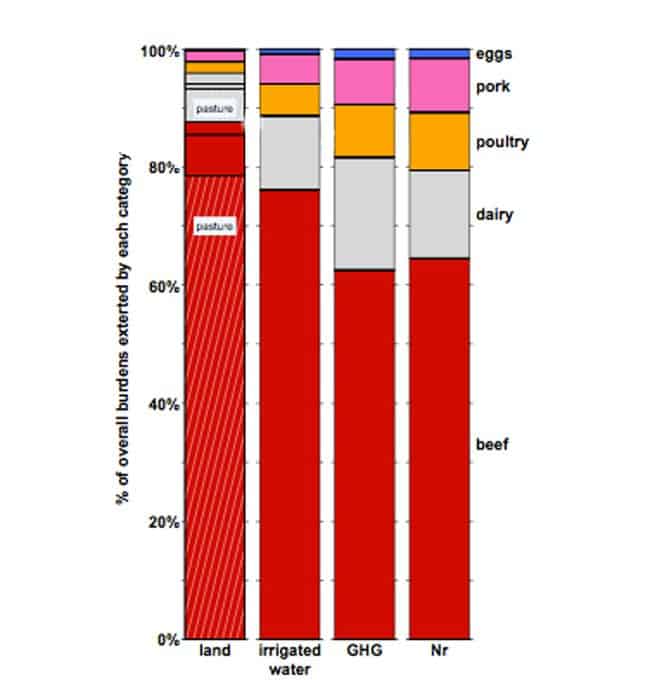Health advocates and pro-plant based activists have long spouted that consuming animal products is detrimental to the environment; however to what extent the damage ranges, or even what animal protein is the worst offender, was previously unknown.
Just last week, though, a new paper was released that compared eggs, dairy, beef, pork, and poultry against each other to test the extent of their production damage on the environment. Guess which one won? That’s right, BEEF.
This is just yet another study claiming that beef production is one of the most harmful animal products to produce or consume. Raising cattle for beef uses the most land, water, and nitrogen fertilizer – all while producing more greenhouse gas when compared to pork, poultry, or eggs in per-calorie comparison. Surprisingly, dairy was even found to be less resource-inefficient when compared with beef.
As reported by the authors, to produce one calorie of beef uses 11 times the amount of water and six times more nitrogen fertilizer than other animal products. However, poultry, pork, eggs, and dairy were found to use relatively similar resource levels.

According to the findings shared in the paper, about forty percent (40%) of the total land area of the United States is currently dedicated to the production of animal-based products. That figure includes the land needed for pasture, as well as feed crops for the animals. As adamantly stated in similar studies, much of that land could instead be dedicated to crops that are directly consumable for humans, as well as need fewer resources per calorie.
The authors also claim case against the idea that cattle ranching often occurs in arid parts of the West, which is unfit for most crops. They argue that that these grasslands could provide other ecological benefits if they weren’t being farmed, particularly by enhancing biodiversity and creating wild habitats.
What about fish? This source of protein and omega-3 fatty acids may be gaining popularity as a healthy ‘meat’ alternative, but harvesting it has also been shown to negatively effect the environment. Relating to this paper, however, seafood was not analyzed for two reasons: one, a lack of comprehensive data, and two, because sea food only accounts for about 0.5 percent of the reported calories by the average American.
By publishing the study, it is the aim of the authors to enlighten policy makers when it comes to farming and food security decisions. “Because our results reflect current US farm policies and agrotechnology, the picture can change markedly in response to changes in agricultural technology and practice, national policies, and personal choice,” they wrote.

Every individual can benefit the environment today by choosing to abstain from beef as a minimum. Including more plant-based, protein-rich foods like leafy green vegetables, broccoli, brussel sprouts, legumes, nuts, and seeds can provide the same valuable nutrition as found in beef (and other animal products), but without the environmental damage.
This finding was recently published by The National Academy of Science. A number of researchers from different institutions collaborated on the project: Gidon Eshel of Bard College, Alon Shepon and Ron Milo of Weizmann Institute of Science in Israel, and Tamar Makov of Yale University.
Source:


